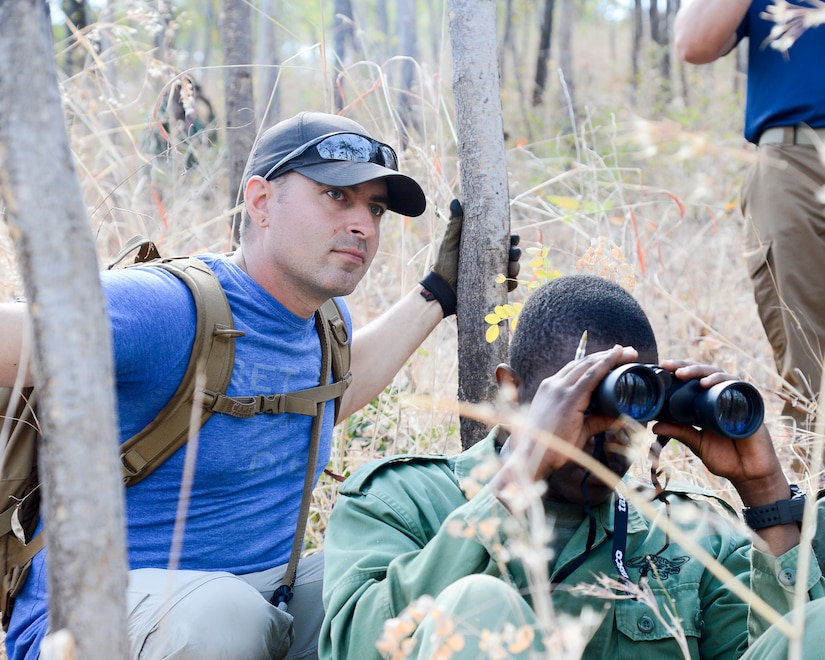By Navy Petty Officer 2nd Class Timothy Ahearn, Combined
Joint Task Force Horn of Africa
NGWALA, Tanzania -- Deep in one of the largest countries in
East Africa, U.S. Army soldiers have been training Tanzanian game wardens in
operations to deter poachers and prevent extremist organizations from profiting
from illicit activities.
The soldiers, with the 404th Civil Affairs Battalion,
attached to Combined Joint Task Force Horn of Africa, conducted training in
countering illicit trafficking for Tanzania Wildlife Management Authority game
wardens, from May to July.
Tanzania is rich in culture and wildlife such as elephants,
giraffes, hippos, and lions. About 38 percent of its land is reserved for
conservation.
Illicit trafficking continues to be a transnational problem
throughout CJTF-HOA’s area of operations. Enhancing the game wardens’
capabilities will disrupt the flow of illicit trade as well as the funding of violent
extremist organizations, Army Maj. Kevin Jusza said.
Poaching Funds Transnational Terrorism
“This illegal poaching and hunting funds transnational
criminal activity,” he said. “A lot of these funds have been engaged with
transnational terrorist activity. In Kenya, for example, Al Shabab [terrorists]
often cross the border from Somalia into Kenya to engage in poaching to fund
their operations.”
The training covered a variety of topics such as medical
skills, land navigation, ethics and human rights, weapons, patrolling, mission
planning, information management and reporting, air to ground reconnaissance,
and apprehension. These courses augment the ability to recognize and intercept
illicit alleged poachers and illicit traffickers.
As of the end of July, the soldiers had completed three
courses and graduated more than 70 game wardens. These wardens use their
training daily to accomplish their mission to prevent and deter illicit
trafficking and poaching activities. Army Sgt. Matthew Smith said he’s proud to
have had such an impact on the Tanzanian game wardens.
“A student we trained last cycle approached me and told me
about a mission last month where his team came upon a poaching camp using
tactics we taught them to clear and process the site,” Smith said. “I was
extremely proud, and for me to be able have a part in their instruction is a
huge joy.”
Studies have shown that illegally trafficked goods from
Tanzania have been distributed throughout the world. A State Department report
from May 2017 said “illicit trafficking remains the lifeblood of the numerous
bad actors and networks, creating vulnerabilities for nations.”
U.S. Africa Command assists partner nations in their efforts
to provide stability and security to their people. The training provided by the
U.S. civil affairs soldiers enables Tanzania to better secure and protect its
natural resources and wildlife from transnational threats and extremist
organizations, officials said.







